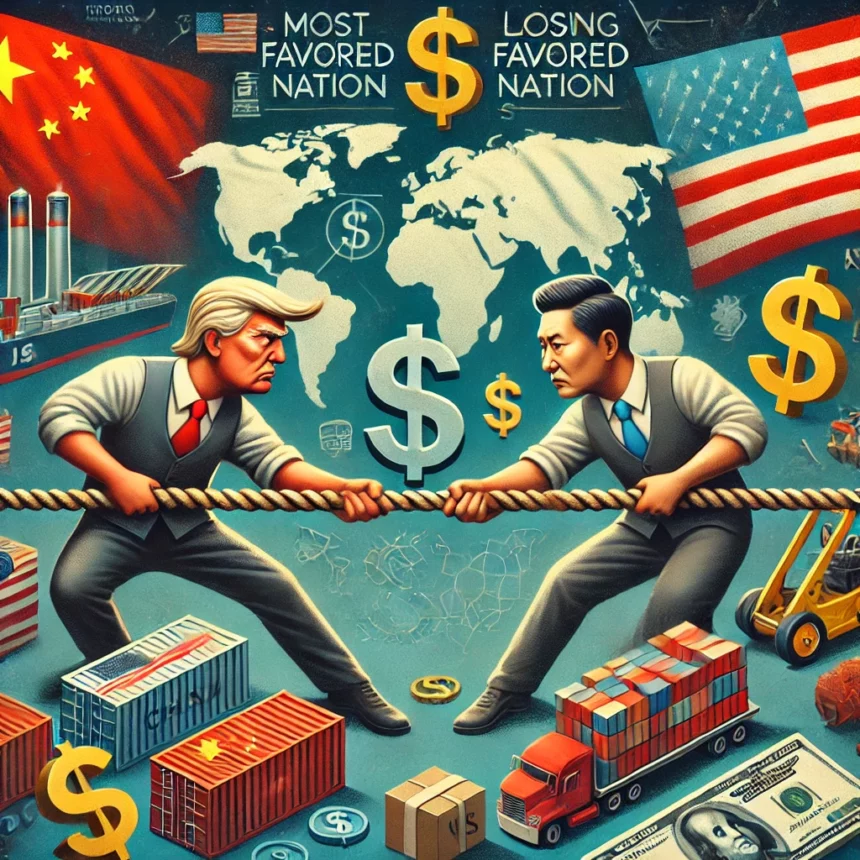Summary by Geopolist | Istanbul Center for Geopolitics:
The article investigates the potential consequences for China in the event that the United States revokes its Most Favoured Nation (MFN) status. This revocation follows Donald Trump’s election victory and his pledge to increase tariffs on Chinese products to 60%. The loss of MFN status has the potential to result in substantial economic strain, including 3.4% deflationary pressure, and could have a detrimental impact on global supply chains. The article presents three scenarios, each of which would cause a reduction in economic development in both countries as a result of increased tariffs. Nevertheless, China has the potential to adjust by emphasizing domestic markets and knowledge-based industries.
The article also highlights the political dynamics behind the push to end China’s MFN status, with key figures like John Moolenaar and Marco Rubio leading legislative efforts to revoke it, arguing that China has exploited its trade privileges to the detriment of American workers and manufacturing. The move comes amidst a shift in U.S. political attitudes towards China, with a focus on countering perceived economic and strategic threats.
The economic forecasts of Shenwan Hongyuan Securities depict scenarios that would result in substantial tariff increases that would be detrimental to both countries. The analysis suggests that the United States would experience reduced domestic consumption and GDP losses that are more severe than those in China, particularly in more aggressive scenarios, despite the potential reduction in its trade deficit. The tariff increases are expected to disrupt Sino-U.S. trade relations, potentially resulting in bankruptcies and a negative impact on Chinese exporters and small businesses.
Nevertheless, China may address these obstacles by concentrating on domestic markets and utilizing its Belt and Road Initiative partnerships. The emphasis could also shift toward enhancing the added value of Chinese products, transitioning from labor-intensive to more advanced knowledge-based production. The columnist posits that, despite the fact that both parties would be affected, China could capitalize on the opportunity to restructure its economy, while U.S. companies may incur increased costs as a result of disrupted supply chains.
The article concludes with remarks from Chinese officials, including the Chinese ambassador to the United States, who advocate for the mutual advantages of trade between the two countries. They emphasize that cooperation has allowed U.S. companies to generate profits in China and has provided American consumers with affordable goods, thereby refuting the narrative of a wholly adversarial trade relationship.
Read more here.







